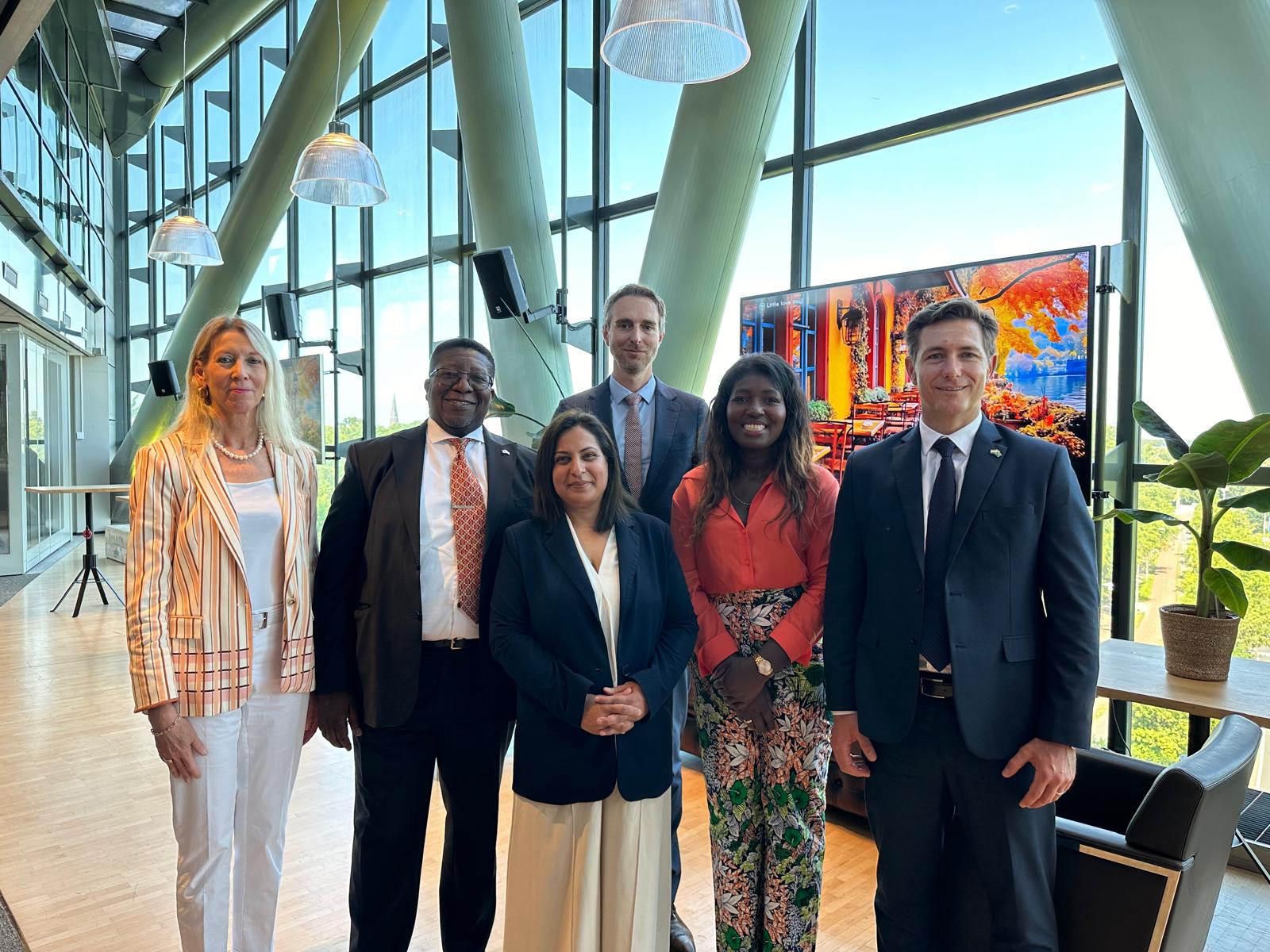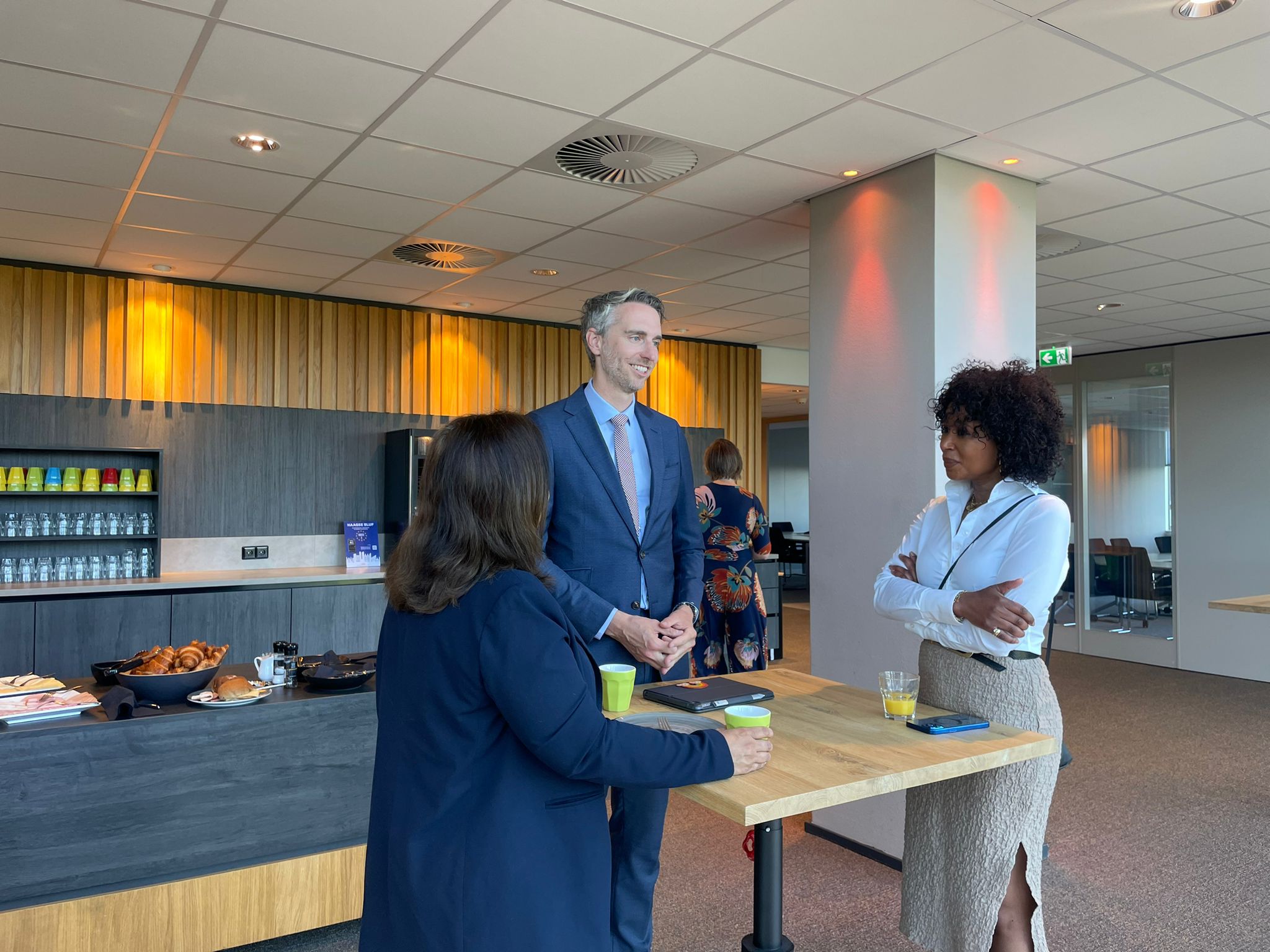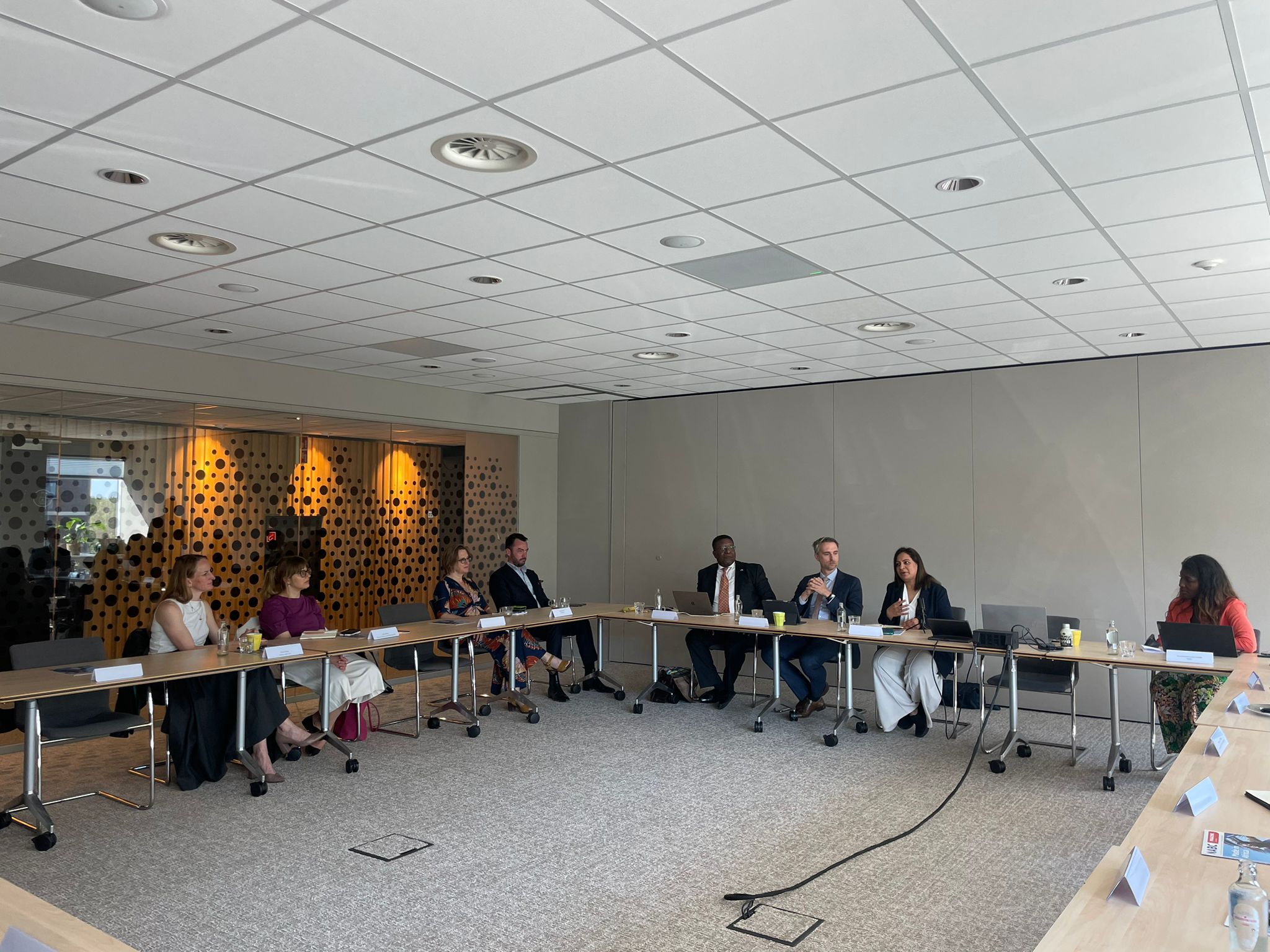Event Recap: South Africa Post-Election and Implications for Future Political and Economic Policies
On June 25th, the Netherlands-African Business Council (NABC) and Standard Chartered Bank, supported by VNO-NCW, organised the second in-person Africa Expert Breakfast.

This edition focused on South Africa post-elections and the future implications for political and economic policies. The event was opened by Ms. Núria Vlonk Cunha Soares, Deputy Managing Director of the NABC, H.E. Mr. Vusi Madonsela, Ambassador of the Republic of South Africa to the Netherlands, Mr. Guus Huijgen, Executive Director at Standard Chartered Bank, and Mr. Leon Taljaard, Business Development Officer Agri-food at Invest International who masterfully moderated the discussion. The session featured Ms. Razia Khan, Head of Research for Africa and the Middle East at Standard Chartered Bank, as the expert speaker. The following article summarises Ms. Khan’s presentation.
Africa’s Rising Significance
For over 15 years, there has been considerable discussion about Africa’s rising significance. This discussion was driven by demographic trends indicating that Africa’s share of the global population would increase. Across various African countries, we observed similar patterns: rural to urban migration, people moving into higher value-added jobs, dramatic economic changes, greater financial inclusion, and the adoption of new technologies. This created a wave of excitement about the region’s growth potential, fostering optimism about transformative changes in African economies. Many believed that African economies were on the brink of delivering something significantly different and positive.
Growth Challenges in South Africa
In retrospect, it was clear that growth could not be taken for granted, even with basic building blocks in place. South Africa exemplifies this. Despite the hope that emerged in 1994 and the early years of its new democracy, the need for conservative economic policies to address accumulated debt initially saw success. This led to a growth acceleration between 1999 and 2005, with the South African economy outperforming expectations. At that time, some economists even worried about the economy overheating. However, the recent growth story in South Africa has been one of disappointment, marked by institutional deterioration, challenging external environments post-global financial crisis, and weaker equilibrium growth. Issues such as state capture, budget deficits, and increasing debt service costs hindered transformative growth.
Renewed Optimism and Persistent Challenges
In 2018, there was renewed optimism with changes in ANC leadership, but the extent of institutional deterioration and debt issues proved challenging to overcome. Market confidence was hard to regain amidst weak growth, infrastructure deficits, and incapacitated state-owned enterprises. Significant shocks like the COVID crisis, high inflation, and the power sector crisis further strained the economy. Despite government efforts to reform, these shocks, particularly the power sector crisis, hindered growth.
Reforms and Economic Indicators
Nevertheless, there are reasons for optimism about South Africa’s economic future. Reforms in the power sector, aimed at reducing ESCOM’s monopoly and encouraging private sector involvement in electricity generation, have started to show progress. Changes in tax regimes and incentives for renewable energy have contributed to more stable electricity generation recently. Although the power sector crisis dominated much of 2023, the implementation of solutions provides a blueprint for future reforms.
Recent growth indicators, despite weak Q1 GDP data, suggest potential for improvement. Retail sales have shown recovery, and the power sector situation has stabilised with no significant load shedding for three months. South Africa is moving forward with reforms, as evidenced by Treasury and Operation Vulindlela’s ongoing efforts.
Political Landscape and Future Growth
The political landscape remains lively, with the ANC embracing a government of national unity. This reflects a broad consensus toward additional reforms, despite the challenges of coalition dynamics and cabinet seat allocations. The ANC’s credibility is at stake, and achieving growth acceleration is imperative to meet the aspirations of the people and minimise political risk. While the base growth rate remains weak, there is hope for meaningful improvement. South Africa has a new opportunity, akin to 1994, to manage its economy carefully and emerge as a transformed nation. This new beginning holds promise for a brighter future, free from the constraints of accumulated challenges.
Broader African Growth Narrative
This optimism extends beyond South Africa. The broader narrative of African growth has become more nuanced. The initial excitement about rapid growth rates in economies like Mozambique and Ethiopia has given way to a recognition of the complexities involved. Economic cycles, external shocks, and policy challenges remain constants. However, the larger African economies, including Nigeria, are beginning to show signs of reform and potential turnaround. Nigeria, in particular, has adopted bold economic reforms aimed at correcting past missteps, signalling a shift that could drive future growth.
In conclusion, while the path to transformative growth in South Africa and the broader African continent is fraught with challenges, there are emerging signs of progress and reasons for cautious optimism. The ongoing reforms, the potential for greater private sector involvement, and the efforts to stabilize and grow the economy provide a foundation for a more prosperous future. The journey is complex, but with continued commitment to reform and careful economic management, there is hope for meaningful and sustained growth.
For the visual recap of the meeting, click here.



About the Expert:
Ms. Razia Khan
Head of Research for Africa and the Middle East
Standard Chartered Bank
Razia is Head of Research, Africa and Middle East, with over two decades of experience covering emerging and frontier markets. She is a well-known commentator on the region and provides regular updates to central banks, finance ministries, institutional investors and corporates in the region. She currently serves as a Trustee of the Royal Africa Society and Save the Children UK, and has been appointed to serve on the Presidential Economic Advisory Council (PEAC) established by the presidency of the Republic of South Africa. She was named one of the ‘100 most influential Africans’ in 2015 by New African magazine, and one of ‘100 Africa economics leaders’ by Institut Choiseul (2017). Razia holds BSc and MSc (Econ) degrees from the London School of Economics.


